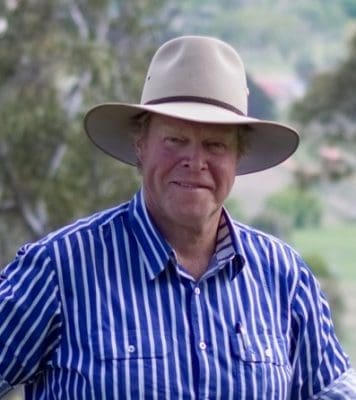MANY primary producers in all regions of Australia are experiencing a genuine thirst to expand their property holdings to support growing businesses.
Coupled with the perfect storm of low interest rates, high commodity prices and (for many, at least) the breaking of drought conditions, rural properties are selling fast, with many potential buyers lining up to acquire their next piece of land and for record prices.
In this week’s property review, industry experts share their knowledge with potential buyers and sellers about being purchase and sale-ready.

Frances Becker
Fran Becker is a senior associate in the food and agribusiness team at McCullough Robertson Lawyers.
She said Australian agriculture is undoubtedly in a seller’s market at present and most buyers are unable to dictate terms of sale.
So, what does this mean and what should both buyers and sellers do to get sale or purchase ready?
Ms Becker said buyers should consider three key factors when buying:
Structure – a rural property can generally be acquired through a partnership, a trust or a company (or a mixture of these types of entities). These entities determine a producer’s ability to claim certain depreciation or write-offs for other assets attaching to the land, and how income and any future capital gains may be distributed. Ms Becker said different entities carry a mixture of short versus long-term benefits, so it was important to understand the consequences of any decision to proceed with a particular entity. “Always seek taxation advice on an appropriate structure before entering into a contract, as once executed it can be difficult to change without significant tax and transfer duty consequences,” she said.
Finance approval – regardless of whether a property is being sold by private treaty, expression of interest or auction, finance applications take time and it is important to understand how much you are able to borrow. Ms Becker said gone were the days of a 14-day turnaround to get finance approval. “In the wake of the Royal Commission, banks are taking on average 30 to 60 days to provide finance approval – subject to aa buyer’s financial position and personal circumstances.” If valuations are needed (to determine current equity position on already held assets), the turnaround time can be close to six weeks, so buyers should also factor that into their time frame,” she said.
Get your team of advisors involved – lawyers are able to help from the outset when considering a property purchase. They are able to undertake initial property searches, review a contract, provide structuring, tax and duty advice or assist to fast track the finance approval process.
When selling
For the seller, it is important to also get ready for a transaction. So, how does this differ from a buyer’s preparation?
Ms Becker said sellers should also consider three key factors:
Confirm what you are selling (i.e. land, livestock, other commodities or assets such as plant and equipment). Make sure this is accurately reflected in the sale contract.
Understand the tax consequence of selling those assets. A sale will trigger a capital gains or other income tax event. Speak to your accountant and solicitor to determine what the tax position is and whether there are any concessions that can be accessed for tax efficiency on the sale.
Ensure your financier is aware of the proposed sale. This means they can be ready to provide any releases of mortgage or security interests, as may be required for completion of a sale (banks require reasonable notice to get these documents ready).
Wendy Gordon, Murdoch Lawyers

Wendy Gordon
Wendy Gordon is a property law solicitor with Queensland’s Murdoch Lawyers. She provided similar advice, urging people to consider a number of issues before entering into a contract to buy or sell rural land.
- What is included in the sale? – ensure items such water entitlements, plant and equipment, machinery, crops and stock are listed in the contract.
- Water entitlements / infrastructure – understand what type of entitlements are included (and what needs to be addressed for their transfer) and ensure all required infrastructure is included in the sale.
- Plant, equipment and machinery – ensure they are correctly described and agree to the value of these items as GST will be payable on them unless a GST exemption is available.
- Crops – address whether standing crops are included or excluded from the sale (and if the seller needs any access following settlement to complete the harvest) and whether the buyer is to be provided with early access (ensuring terms are agreed and recorded in the contract).
- Stock – deal with who is to pay the transaction levy and consider whether the seller needs time after settlement to remove stock.
- Agreements – rural properties are often affected by agreements with mining and energy companies, neighbours, government bodies and other organisations and these each need to be considered and addressed in the contract.
- Property access before or after settlement – Buyers may need to access the property before settlement (to graze livestock) and sellers may seek to access the property after settlement (to remove livestock or hold a clearing sale), and the terms of these agreements need to be recorded in the contract.
Margaux Beauchamp, BDO
Margaux Beauchamp is the executive director of corporate finance at BDO, one of the largest accounting and advisory networks in Australia.
Ms Beauchamp said the current rural property space was extremely hot.
“In today’s bull market, most of the buyers are current players looking to expand. The majority of external capital the industry is able to attract is from entities that already have an investment in the industry and often they are partnering with Australian operators,” she said.

Margaux Beauchamp
Ms Beauchamp encouraged vendors and potential sellers to maintain the ‘black magic’ as much as possible.
“In the past, when the market was hesitating, vendors gave potential buyers an abundant amount of information to entice them to the table. Today, sellers may be better off giving less information, especially to existing players.”
“Given the current market sentiment, they can make their own optimistic assumptions about going forward,” she said.
Ms Beauchamp said in the current market, people were prepared to look longer term.
“As a result, there is less discounting for seasonal conditions. However, discounts may apply for a property underdeveloped for its area. For instance, properties lacking exclusion fencing may be discounted by the cost of carrying out the work in the future.”
Ms Beauchamp said responsible property management now also carried a value.
“It is important for sellers to highlight a property’s environmental credentials. For instance, if it features A-grade pasture, carbon farming, holistic approaches etc.”
Ms Beauchamp urged potential buyers to talk to their banks about their finances and suggested, in some cases, they may need help putting the relevant information together.
Graham MacDougall, MacDougall Rural Property
Graham MacDougall from MacDougall Rural Property Armidale said the best way an asset will stand out in the summer of 2021-22 is to actually put it on the market.
“The ‘rare opportunity to buy’ cliché has been flipped on its head with the rare opportunity now lying with the seller. There is a strategic opportunity to offer properties to an uncrowded market that has more buyers than sellers.”

Graham MacDougall
Mr MacDougall said supply in most areas was low.
“After the drought, there was a turnover of properties and now many people are enjoying the good times. The season is greatly improved and the outlook for commodities remains buoyant.”
“On top of those positives, there has been a general rise in property values across the board. The motivation to sell up has been replaced with motivation to expand or to get into the industry.”
Mr MacDougall’s advice was to sell when others are looking to buy, and to buy when others are looking to sell.
“The lack of supply means now is a good time to hit the market. However, in the bigger scheme of things, the next 12 months will be as good a time as any because the market fundamentals should remain the same.”
Property prices may be at record levels, but Mr MacDougall warned that discounting can still occur.
“Vendors should ensure their properties are presenting well and are in good working order. Potential buyers will consider the cost of replacement fencing or new yards.”
He outlined his own eight imperatives of selling a rural property:
- Communicate with your family – agreement on goals and expectations is essential. Everyone should have an unambiguous understanding of what is trying to be achieved and where they stand during and after the sale.
- Get the price right – a property must be able to justify its market price.
- Go with an agent you like and respect – select an agent you can trust.
- Consider an effective marketing strategy – for a property to be sold, people need to be told.
- Present your property as being prosperous – pay attention to detail.
- Decide which sales method to use – auction, private treaty, tender or expressions of interest.
- Justify your production claims with hard data – trying to pull the wool over someone’s eyes only goes to build cynicism and distrust between all parties.
- Know when to go – think long and hard about any offer that comes within your original, justifiable expectations.
Mr MacDougall said rural Australia ‘went AWOL’ for a period from Christmas, so people who were considering selling should talk to whoever is going to market their property before Christmas, get a plan etched out and be ready to go some time after Australia Day (January 26).
